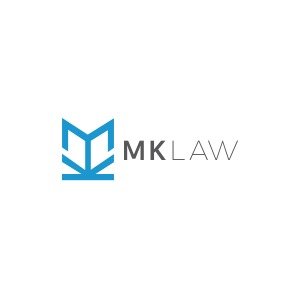Best Job Discrimination Lawyers in Auckland
Share your needs with us, get contacted by law firms.
Free. Takes 2 min.
List of the best lawyers in Auckland, New Zealand
About Job Discrimination Law in Auckland, New Zealand
Job Discrimination, referred to as employment discrimination in New Zealand, includes unfavourable treatment on the basis of race, color, national or ethnic origin, gender, marital status, religious beliefs, ethical beliefs, sexual orientation, age, disability, family status, or political opinion. Auckland, like the rest of the country, is governed by the Human Rights Act of 1993 and the Employment Relations Act 2000, which both prohibit such discrimination at the workplace.
Why You May Need a Lawyer
If you believe you have been discriminated against in your current or previous employment, you may need a lawyer to investigate your claim and provide appropriate advice on the legal recourse available to you. You may also require a lawyer if you are subjected to unfair treatment, harassed or unjustly dismissed on the basis of prohibited discrimination grounds. A lawyer can act on your behalf during conciliation or mediation proceedings or represent you in an Employment Tribunal or Court.
Local Laws Overview
The key laws governing job discrimination in Auckland and throughout New Zealand are the Human Rights Act 1993 and the Employment Relations Act 2000. The former act prohibits discrimination on several grounds, including race, sex, marital status, religious belief, ethical belief, color, national origin, disability, age, political opinion, employment status, family status, and sexual orientation. The Employment Relations Act provides protection against unjustifiable dismissal and unfair bargaining. It also ensures good faith behaviour in employment relationships.
Frequently Asked Questions
What is considered job discrimination?
Job discrimination is any action or behavior that treats an employee or job applicant differently based on their personal characteristics like race, sex, age, disability, etc., which are protected under the Human Rights Act 1993.
How can I file a job discrimination complaint in Auckland?
You can file a discrimination complaint with the Human Rights Commission, or you may choose to engage a lawyer to help lodge a personal grievance with your employer or bring a claim before the Employment Relations Authority.
What recourse is available if I have been discriminated against at work?
If you have been discriminated against at work, you can file a complaint with the Human Rights Commission or you can take a personal grievance to the Employment Relations Authority or Employment Court. Compensation may be awarded if your complaint is upheld, which may include lost wages and distress compensation.
Will my employer know if I file a complaint?
Yes, your employer will be notified if you file a complaint about job discrimination. However, retaliation or victimization against an employee for filing a complaint is illegal under the Human Rights Act 1993 and Employment Relations Act 2000.
Can job discrimination occur even during recruitment?
Yes, job discrimination can occur at any stage of employment, including during the recruitment process. Employers cannot advertise jobs or interview candidates in a discriminatory manner and must not consider the prohibited grounds of discrimination when hiring.
Additional Resources
The Human Rights Commission and Employment Relations Authority offer free information and advice for individuals dealing with job discrimination. There are also non-governmental organizations such as Citizens Advice Bureau and Community Law Centres that can help with legal information and advice.
Next Steps
If you believe you have been discriminated against in the workplace, document any incidents and gather evidence of the discriminatory behaviour. You should then contact the Human Rights Commission or engage a lawyer to advise on your case. If a resolution cannot be reached through dialogue with your employer or through mediation at the Human Rights Commission, you may decide to take your case to the Employment Relations Authority or Employment Court.
Lawzana helps you find the best lawyers and law firms in Auckland through a curated and pre-screened list of qualified legal professionals. Our platform offers rankings and detailed profiles of attorneys and law firms, allowing you to compare based on practice areas, including Job Discrimination, experience, and client feedback.
Each profile includes a description of the firm's areas of practice, client reviews, team members and partners, year of establishment, spoken languages, office locations, contact information, social media presence, and any published articles or resources. Most firms on our platform speak English and are experienced in both local and international legal matters.
Get a quote from top-rated law firms in Auckland, New Zealand — quickly, securely, and without unnecessary hassle.
Disclaimer:
The information provided on this page is for general informational purposes only and does not constitute legal advice. While we strive to ensure the accuracy and relevance of the content, legal information may change over time, and interpretations of the law can vary. You should always consult with a qualified legal professional for advice specific to your situation.
We disclaim all liability for actions taken or not taken based on the content of this page. If you believe any information is incorrect or outdated, please contact us, and we will review and update it where appropriate.















